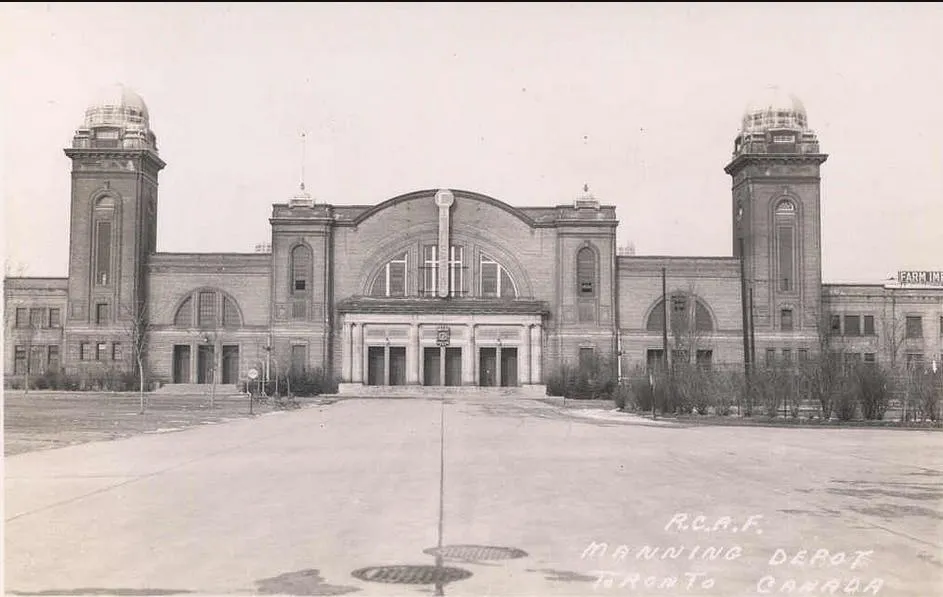Trainees began their military careers at a Manning Depot where they learned to bathe, shave, shine boots, polish buttons, maintain their uniforms, and otherwise behave in the required manner. There were two hours of physical education every day and instruction in marching, rifle drill, foot drill, saluting, and other routines.
Remedial high school education was offered to bring 17- and 18-year-old trainees up to the RCAF academic level. There was also a standard aptitude test: the RCAF Classification Test. After four or five weeks, a selection committee decided whether the trainee would be placed in the aircrew or groundcrew stream. Aircrew "Wireless Air Gunner" candidates went directly to a Wireless School. "Air Observer" and "Pilot" aircrew candidates went to an Initial Training School.
Trainees were often assigned "tarmac duty" to keep busy. Some were sent to factories to count nuts and bolts; others were sent to flying schools and other RCAF facilities to guard things, clean things, paint things, and polish things. Tarmac duty could last several months or more.

More information on the RCAF Station at Toronto can be found at
Project 44 BCATP